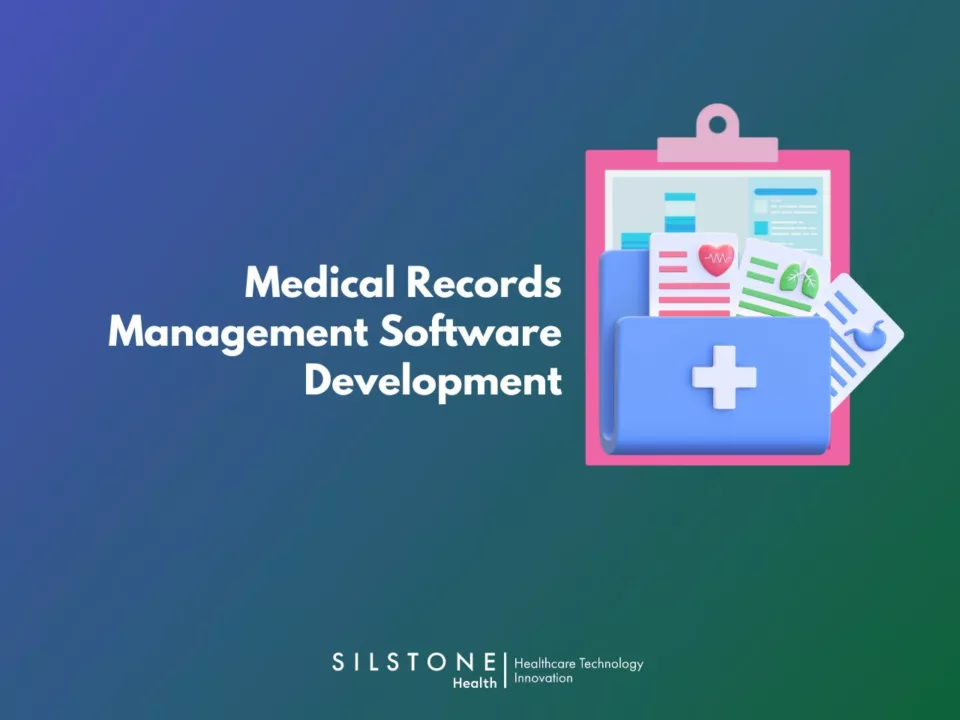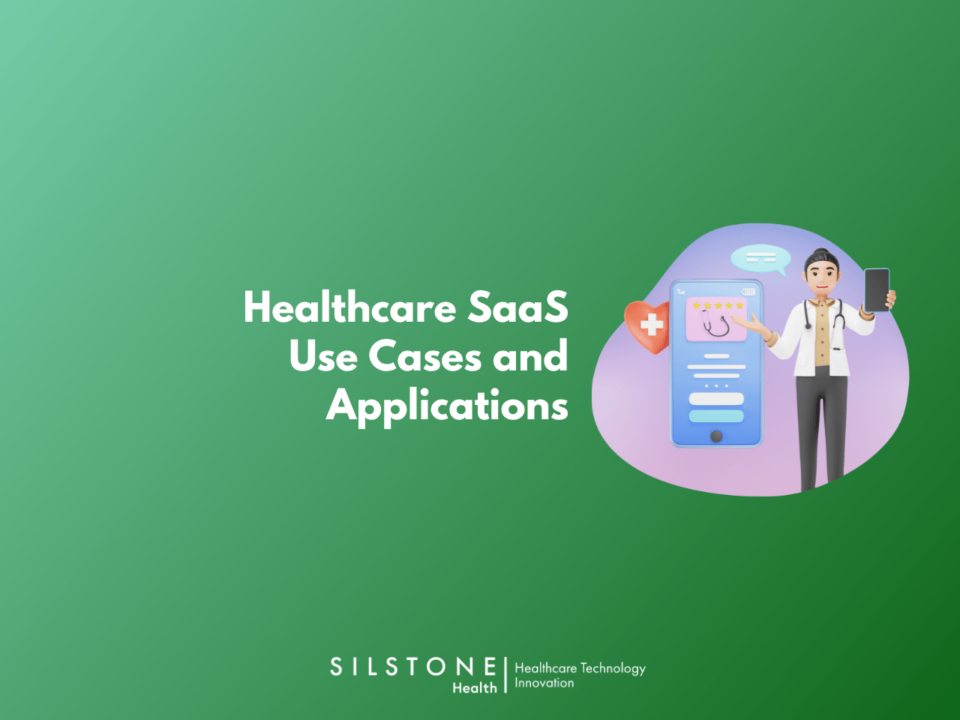
The Importance of Data Security and Compliance in Healthcare Software Development
March 28, 2023
Unleashing the Power of Digital Transformation in Healthcare
June 28, 2023Medical Records Management Software Development

Medical records are one of the most important sources of information for healthcare professionals. They contain critical information about a patient's medical history, diagnoses, treatments, and test results, among other things. It has become an essential tool for medical practitioners, as it provides valuable insights that enable them to make informed decisions about patient care.
Integrating a medical reporting system into an existing software solution can offer numerous benefits for healthcare providers, particularly doctors. By automating administrative tasks such as data entry and report writing, a reporting system can help doctors save time and focus more on patient care. It can also improve the accuracy of patient data and reports, enabling better communication and collaboration among healthcare providers. Integrating a reporting system into a software solution can increase accessibility to patient data and reports, making it easier for doctors to provide care remotely or share information with other healthcare providers. However, there are also several challenges and best practices that must be considered to ensure the success of the integration.
Benefits of Medical Records Management Integration
The medical records integration is designed to help healthcare providers manage patient information efficiently. It provides a range of benefits, including:
- Accurate and Up-to-Date Information
One of the most significant benefits of medical records management software is that it ensures accurate and up-to-date information about patients. This is critical in providing quality care to patients. The software allows for easy access to medical records, ensuring that healthcare providers have the most recent information about a patient's condition, treatments, and medications.
- Improved Patient Care
Medical records management software enables healthcare providers to deliver better patient care. It provides them with valuable insights into a patient's medical history, enabling them to diagnose conditions quickly and accurately. It also allows them to track a patient's progress over time, ensuring that they receive appropriate care.
- Enhanced Communication
Medical records management software promotes better communication between healthcare providers. It allows them to share patient information easily and securely, ensuring that all providers have access to the same information. This improves the coordination of care and reduces the risk of errors.
- Cost Savings
Medical records management software can also help healthcare organizations save money. It reduces the need for paper records, which can be costly to manage and store. It also reduces the risk of errors, which can result in costly lawsuits.
- Compliance
Finally, medical records management software helps healthcare organizations comply with regulatory requirements. It ensures that patient information is stored securely and that it is only accessed by authorized personnel.
Factors to consider when integrating a medical record system
While integrating a Medical record System, the following factors are critical to ensure the system is functional, efficient, and secure :
- HIPAA Compliance: The Health Insurance Portability and Accountability Act (HIPAA) sets national standards for the security and privacy of protected health information (PHI). Any software solution that integrates a medical reporting system must comply with HIPAA regulations to ensure the confidentiality and security of patient data.
- Data Interoperability: A medical reporting system must be able to integrate and exchange data with other healthcare systems. Therefore, the software solution should support data interoperability standards, such as HL7 and FHIR.
- User Interface: A medical reporting system must be easy to use and navigate for clinicians and other healthcare professionals. The user interface should be intuitive and provide all the necessary information in a clear and concise manner.
- Performance: The medical reporting system should be fast and responsive to minimize any delays or disruptions in patient care.
- Scalability: The software solution should be scalable and able to handle a large volume of medical data, especially as the organization grows.
- Maintenance and Support: The medical reporting system should be regularly updated and maintained to ensure it remains up-to-date and free of bugs or vulnerabilities. The software solution should also provide adequate support to users in case of any issues.
- Integration with Electronic Health Records (EHRs): The medical reporting system should be able to integrate with EHRs to streamline the exchange of patient data between healthcare providers.
- Security: The medical reporting system must be designed with security in mind. This includes measures such as data encryption, access controls, and audit logs to ensure that patient data is protected from unauthorized access or theft.
- Regulatory Compliance: The medical reporting system should comply with relevant regulatory requirements, such as the Food and Drug Administration (FDA) regulations for medical devices.
- Cost: The cost of integrating a medical reporting system into a software solution should be considered, including the cost of licenses, implementation, training, and ongoing support.
The Importance of a Specialized Healthtech Team for Successful Integration of Medical Record Systems
To ensure the above factors are considered, the involvement of a specialized healthtech team is necessary. The team may include clinicians, healthcare administrators, IT professionals, and software developers having expertise in the following areas :
- Domain Expertise: Healthcare professionals, such as physicians and nurses, bring their knowledge and experience to the team to ensure that the medical reporting system meets the needs of clinical workflows and patient care. They can provide valuable input on what data should be captured, how it should be presented, and how it should be used to support clinical decision-making.
- Technical Expertise: IT professionals and software developers bring their technical expertise to the team, ensuring that the medical reporting system is integrated with existing healthcare systems, meets data security standards, and is scalable to support the growing needs of the organization.
- Collaboration: Integrating a medical reporting system requires collaboration between different departments and stakeholders within a healthcare organization. A specialized healthcare team can facilitate communication and coordination between these groups to ensure that the system meets everyone's needs.
- Compliance: Healthcare is a highly regulated industry, and integrating a medical reporting system requires compliance with various regulations, such as HIPAA and FDA regulations. A specialized healthcare team can ensure that the system is designed and implemented in compliance with these regulations.
- User Adoption: A medical reporting system is only useful if it is widely adopted by clinicians and other healthcare professionals. A specialized healthcare team can ensure that the system is designed with the end-user in mind, making it intuitive and easy to use.
If you're a healthcare startup looking to integrate a medical recording system into your software solution, Silstone Health can provide you with the specialized expertise you need to succeed. Our team of specialized Doctors and IT professionals has extensive experience in compliance, user adoption, and collaboration, ensuring that your integration is successful.
What's more, we understand the challenges faced by startups and offer a unique risk-sharing model to help you overcome these obstacles. By reducing our rates by 50% in exchange for future contracts or revenue, we provide you with significant cost savings, allowing you to invest more in product development.





